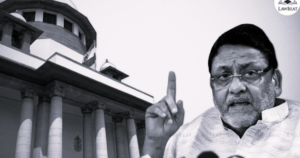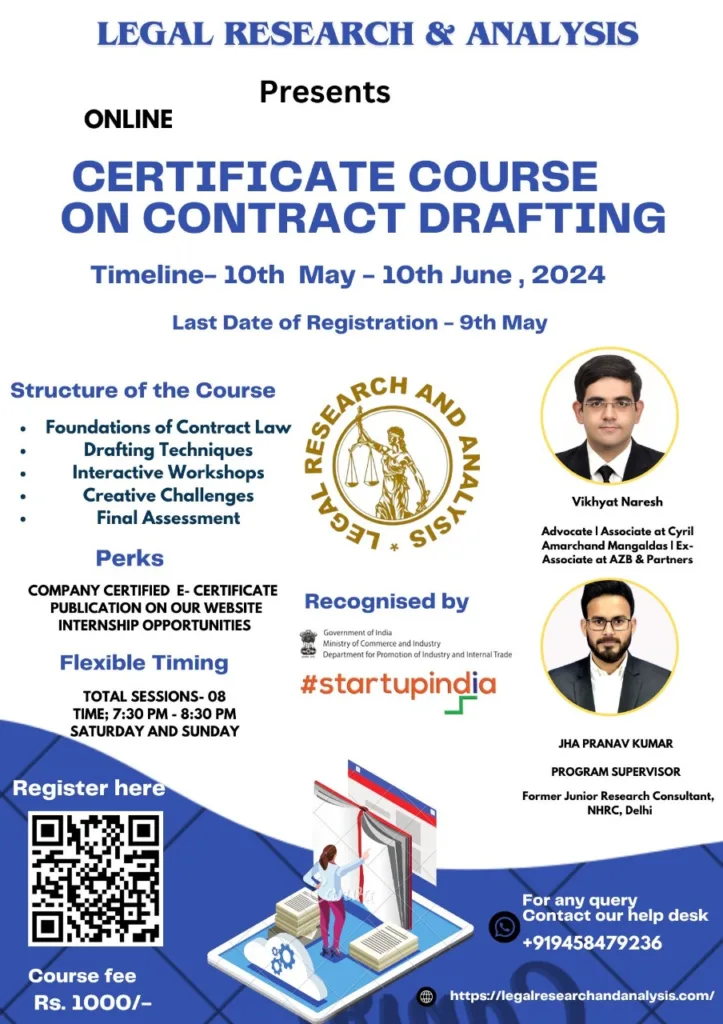
Lawyers should be allowed to work Phones or laptops inside courtrooms: CJI DY Chandrachud

Delivering the Inaugural Silver Jubilee Lecture-cum-Convocation Address at the 19th Annual Convocation of NALSAR University, the Chief Justice of India, Justice D.Y. Chandrachud, on Saturday, highlighted the importance of empathy and compassion in legal education.
“I believe that empathy is an essential ingredient in the law and it is what separates a just society from an unjust one. It is a critical component of justice and facilities in promoting a compassionate view of justice.”, he said.
While reflecting upon the practice of discrimination, which plagues educational institutions, the CJI referred to the recent incident of a Dalit student committing suicide at IIT, Bombay. He recalled that similarly last year an Adivasi student at NLU, Odisha had also committed suicide.
He advocated that “The incidents of the suicide of students from the marginalised communities are becoming common. These numbers are not just statistics, they are stories sometimes of centuries of struggles”.
He opined that we need to inculcate the feeling of compassion and empathy in our educational institutions. He said that it is high time that rather than only focusing on creating institutions of eminence we focus on creating institutions of empathy.
The CJI reckoned that the judiciary should be part of the discourse as the lack of empathy in educational institutions is linked to the issue of discrimination.
He referred to the Black Lives Matter movement in the US and the judicial support it garnered there. He said similar efforts are to be made by the judges in India where they ought to engage in a dialogue with the society even beyond the courtrooms.
Focusing on ‘empathy’, which the CJI regarded as ‘an essential ingredient of law’ and ‘critical component of justice’, he expressed his opinion that it has the potential to end the culture of elitism and exclusion.
The CJI did not shy away from elucidating on the practices which entrenches caste discrimination- “Allotment of hostels based on entrance marks which leads to caste-based subjugation; putting out a public list of marks along with categories; asking for the marks of Dalit and Adivasi students publicly to humiliate them; making a mockery of their English and physical appearances; stigmatising them as inefficient; not acting on incidents of abuse and bullying; not providing a support system and reducing or stopping their fellowships; normalising stereotypes through joke…”
Criticising such practices, the CJI appealed to the educational institutions and their students to make an attempt to inculcate a feeling of empathy towards these students. He highlighted that suck lack of social empathy has a very serious impact on the mental attitude of the students.
On accessibility, the CJI acknowledged that the NLUs have been struggling to be accessible to a large section of society. He identified the concerns, particularly the one pertaining to the pattern of the entrance exam which acts as an impediment for students not well-versed in the English language. However, he opined that merely changing the pattern of the exam would be of no use, until and unless the internal structure of the law schools is altered. The CJI was also vocal about the financial inaccessibility of these institutions. He suggested that the law schools and the Government sit together to make NLUs financially accessible.
The CJI encouraged strengthening the traditional law universities so that legal education as a whole witness a revamp. He added that the NLUs rich in resources should assist other smaller law colleges to grow academically.
While addressing the issue of accessibility the CJI referred to the structural and functional changes made in the Supreme Court to improve accessibility in the profession. He mentioned the increasing use of the E-Court facility to get access to the repository of Supreme Court judgements. He also talked about the provisions of video-conferencing and live-streaming that contributed overwhelmingly to improving accessibility and reposing the faith of the masses in the judicial system of the country.
The CJI made it abundantly clear that though the Courts are moving towards technological advancement it is not moving away from the society that it serves. “The purpose of technology is to ensure our work continues as it always has been at the centre stage of society, cognizant of the real life of our citizens on a day-to-day basis.”
Talking about inclusivity, the CJI apprised all present that he has approved in principle a proposal sent by the National Commission for Scheduled Tribes to have 36 law graduates from the Scheduled Tribe community come and work at the Supreme Court of India as Fellows. The CJI expressed hope – ‘these students whom we mentor today shall become successful lawyers and judges in the future’.
He also mentioned the Supreme Court’s effort to make the premises as well as its functioning accessible to persons with disability. On 3rd December 2022, the Chief Justice of India, Justice D.Y. Chandrachud constituted a Committee on Accessibility with the aim to conduct a comprehensive accessibility audit of the Supreme Court premises. The Committee headed by Justice S. Ravindra Bhat has the mandate to conduct an accessibility audit extending to both physical as well as functional accessibility.
Towards the end of his address, the CJI stated that with the advent of technology, the Supreme Court is no longer limited by its geographical location- “I do believe that the Supreme Court of India is not the Supreme Court of Tilak Marg, Delhi, but truly a court for the nation.”The CJI emphasises that technology should be used to take education to the masses so that law is no longer a profession of elites. He recommended that teaching resources be made available to students beyond the NLUs so that quality learning can be promoted without any barriers. He beseeches the NLUs to make educational videos freely available to all and sundry so that education can become a sort of democratisation and the breaking down of feudal and patriarchal structures in our society.







